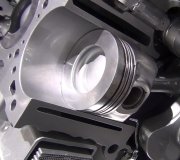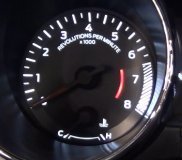Sunday, July 29th, 2012 AT 4:01 AM
Been having some problems that I'm trying to nail down (car hesistates at idle only after engine has warmed up and sometimes will rarely shut off when put into gear. I will have to get back with you because first I want to troubleshoot a few items before throwing in the towel per se. I have an Innova scan tool which gives me a live data read. It shows what they call "spark advance" in degrees. Is this the same as ignition timing? If so, why do they call it spark advance rather than ignition timing and if its not the same what is spark advance and its relation to ignition timing if any? You guy do a great service for us diy's. I appreciate your input.


